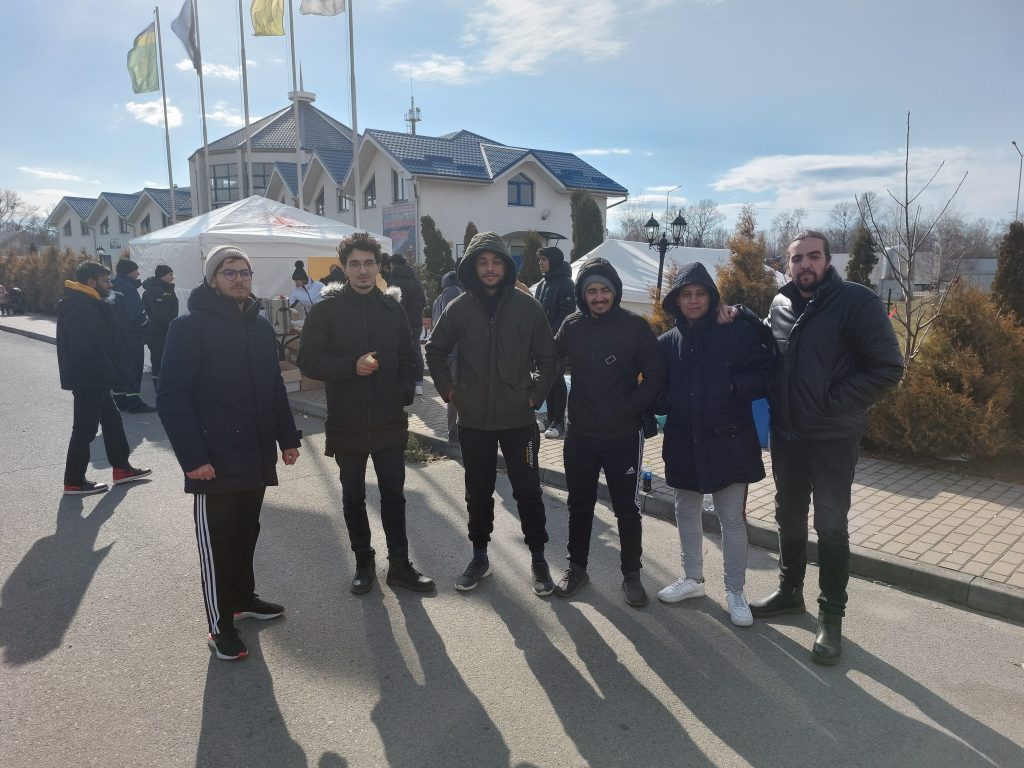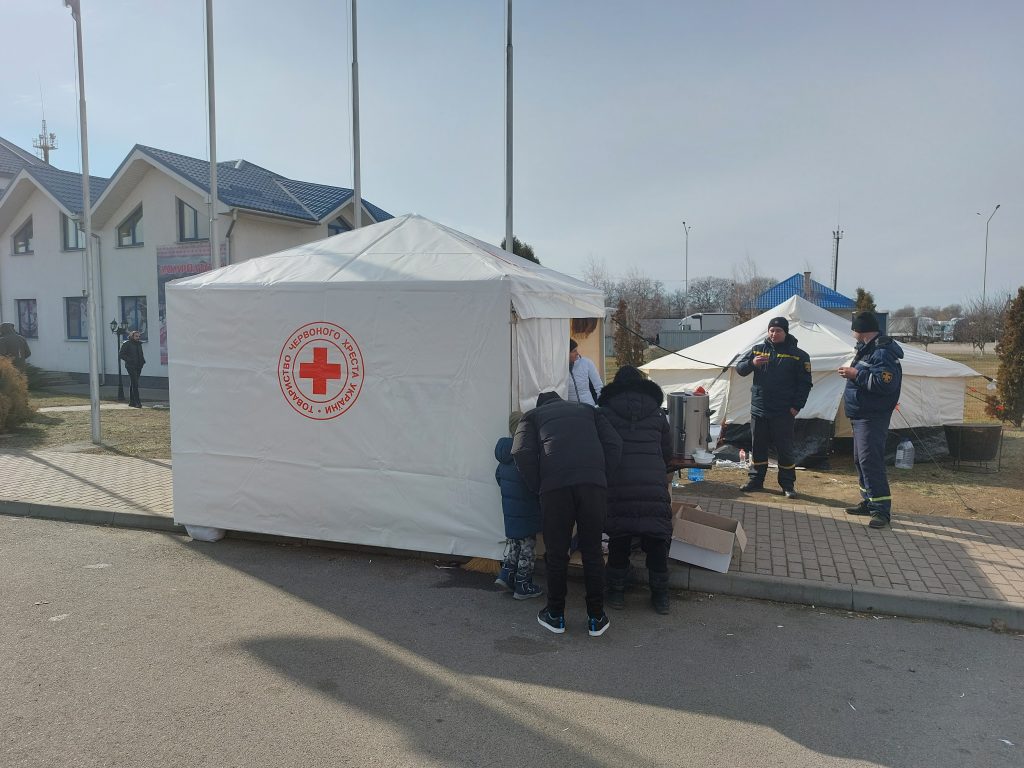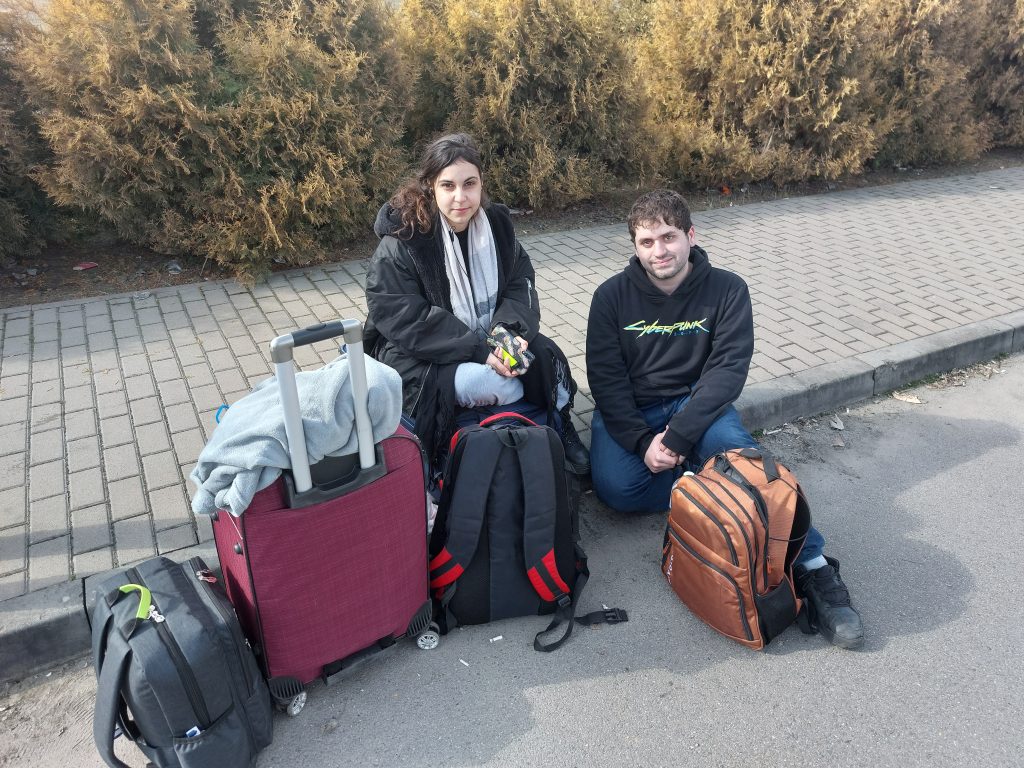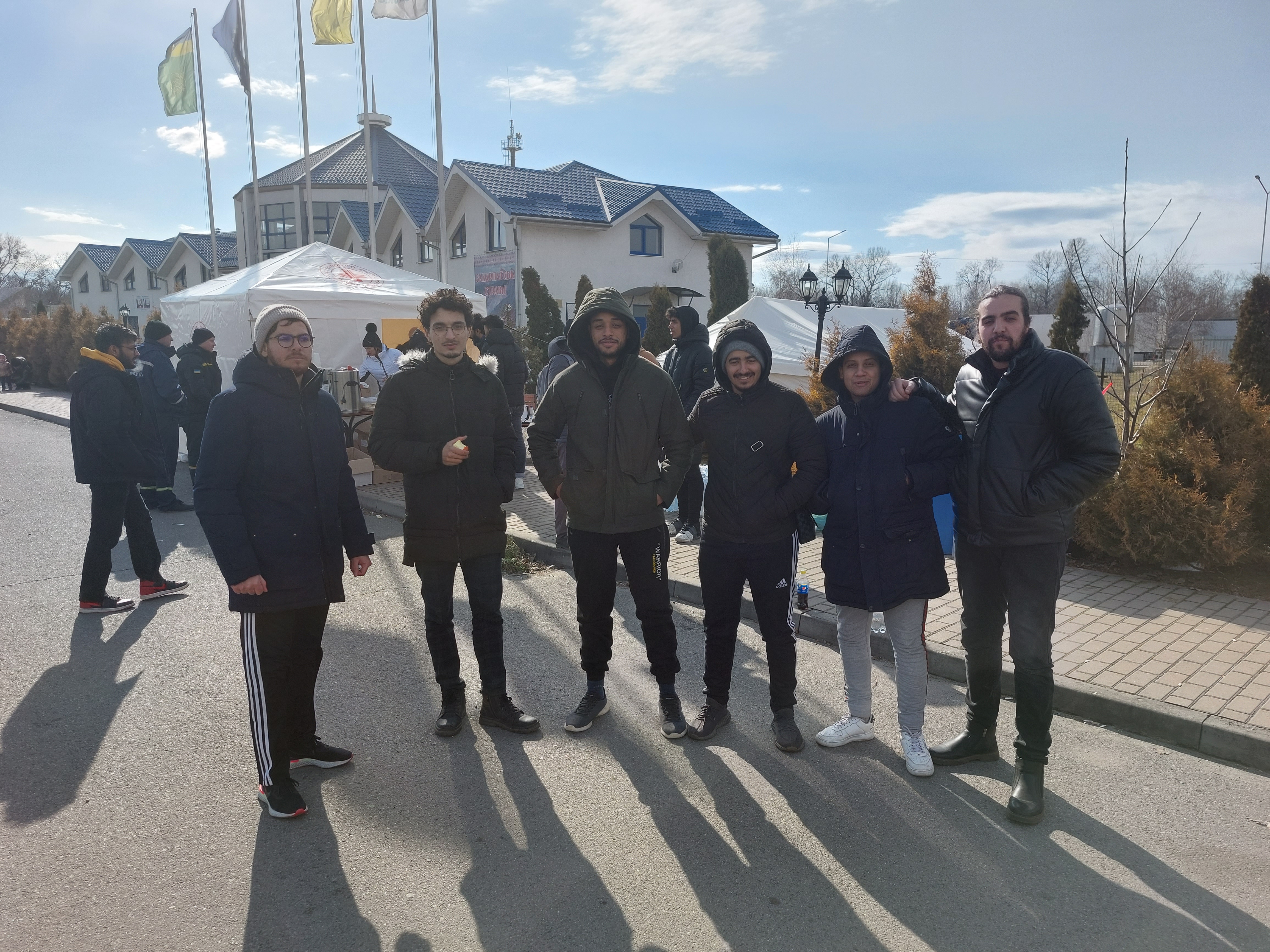
TYSA, Ukraine – Upon arrival at the Tysa border checkpoint between Ukraine and Hungary, one is struck by the shortness of the vehicle queue.
Fewer than a hundred cars stand in line, a sharp contrast to the 30-kilometer queues at some crossings into Poland.
However, to the side of the road stand two dozen international students, going nowhere.
Most of the foreigners came here for an inexpensive education at a European university, but are now left fleeing for their lives as the Russian army indiscriminately bombs Ukrainian cities in its attempt to overthrow the Ukrainian government.
Nor, one of Ukraine’s 76,000 foreign students, studied in the southern city of Zaporizhia, which lies in the path of Russia's advance in southern Ukraine.
“I have been here nearly four days, and I am still waiting,” 23-year old pharmacy student Nor, who is from Morocco, told the Kyiv Independent.
The problem Nor and his friends face is frustratingly bureaucratic: The students arrived at Tysa, located near the town of Chop in western Zakarpattia Oblast, by train. They attempted to cross on foot, only to be told that the crossing point is for vehicles only.
“They (the border guards) tell me: you must wait for your embassy to pick you up on buses," Nor said. "We are waiting for days and still nothing.”
Bureaucratic nightmare
For some students, like fellow Moroccan Amin, the problems with bureaucracy started even earlier.
“Our embassies told us to leave (before the invasion started), but our university hadn’t given us all our (immigration) documents yet, so we had to stay,” he said.
The group of young men all studied pharmacy at either Kharkiv’s Karazin State University or Zaporizhia National University, and are all from Morocco. There are nearly 9,000 Moroccans studying in Ukraine, a phenomenon dating back to Soviet-era educational exchanges.
They drink tea and eat cheese sandwiches distributed by the Red Cross as they narrate their journeys to the border, wondering when they can finally cross to the other side.

“It was chaos, people were pushing each other, men weren’t allowed onto the train, it was a catastrophe,” Amin told the Kyiv Independent.
“There are a lot of students stuck in Zaporizhia right now. They’re being attacked by Russia, they are scared, and nobody is helping them,” interjects Usama, his voice dripping with feeling.
The students at the border say their journeys here were unimpeded. None were denied boarding onto trains due to their nationality or ethnicity.
Recently, stories have emerged in international media that foreign nationals, especially ethnic minorities, were being discriminated against at other crossing points as they were trying to flee Ukraine. Nigerian Rachel Onyegbule told CNN that non-Ukrainians, including women, were denied boarding on cross-border buses and had to walk for hours instead.
Several Moroccan nationals told the Kyiv Independent that, while trying to cross into Poland at Shehiny crossing point in Lviv Oblast, they were repeatedly told to go to the back of the passport control queue. Their crossing took three days.
Ministry of Foreign Affairs spokesperson Oleh Nikolenko denied any discrimination was taking place.
"There is no discrimination by race or nationality, certainly not when foreign nationals are crossing the border," he said.
New hopes
Nothing about Tysa indicates the practical impossibility of crossing on foot. Several passport control booths stand idle most of the time, as cars wait in line to be checked by customs officers.
The crossing point to Slovakia at Uzhorod, 25 kilometers north, has temporarily opened to foot traffic, but nobody told the students. They spend their nights sleeping on the cold tiles of an indoor waiting area, the sort of place one wouldn’t want to sit for more than an hour or two.
Egyptian Ahmed Nasr, 20, and Turkish Nina Kimyonşen, 22, are medical students at Kharkiv’s Karazin National University, one of the most prestigious in Ukraine. There are 5,000 foreign students at the university, and no formal evacuation was organized for them until March 2.

The day they spoke to the Kyiv Independent, missiles hit the university as Russian forces closed in on Kharkiv, Ukraine’s second-largest city, with a population of 1.4 million. Devastating footage emerged of the economics faculty badly damaged and burning.
Ahmed Nasr and Nina Kimyonşen sit at the Tysa border crossing in Zakarpattia Oblast on March 1, 2022.
Nina had been told to wait for help from the Turkish Embassy, but she and Ahmed decided to get out two days into the invasion.
“We said, OK, maybe we can wait for two days more (for the embassy), but then we left by train because it was too dangerous. Now, two days later, our home is bombed,” said Ahmed. “I barely had a chance to discover Ukraine, and now that I lost it, I feel empty.”
“Our families are worried about us. They want to see us, they thought we were going to die,” Nina added.
Ahmed and Nina, who had been at the border for three hours, were then approached by a local man who offered to put them on a train across the border. However, Ahmed later told the Kyiv Independent that the train wasn’t running.
The two students had to get a taxi to another checkpoint to cross into Hungary on foot, at which point they were given some food and driven to Budapest, where they are now.
Ahmed and Nina were both anxious about the future of their education when at the border, but they seemed more positive the next day when they were across the border.
“Now they told us we are allowed to go anywhere in Europe and find universities easily,” Ahmed wrote from Budapest.













